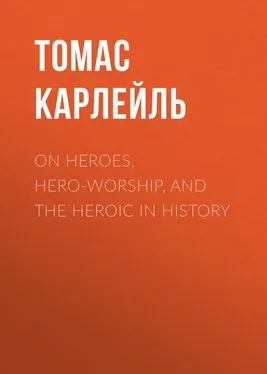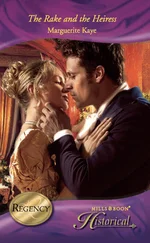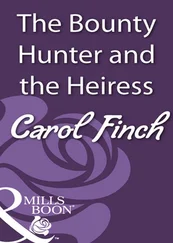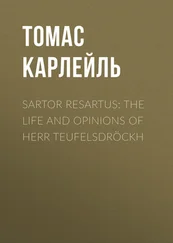Томас Карлейль - On Heroes, Hero-Worship, and the Heroic in History
Здесь есть возможность читать онлайн «Томас Карлейль - On Heroes, Hero-Worship, and the Heroic in History» — ознакомительный отрывок электронной книги совершенно бесплатно, а после прочтения отрывка купить полную версию. В некоторых случаях можно слушать аудио, скачать через торрент в формате fb2 и присутствует краткое содержание. Жанр: foreign_prose, История, foreign_edu, foreign_antique, на английском языке. Описание произведения, (предисловие) а так же отзывы посетителей доступны на портале библиотеки ЛибКат.
- Название:On Heroes, Hero-Worship, and the Heroic in History
- Автор:
- Жанр:
- Год:неизвестен
- ISBN:нет данных
- Рейтинг книги:5 / 5. Голосов: 1
-
Избранное:Добавить в избранное
- Отзывы:
-
Ваша оценка:
- 100
- 1
- 2
- 3
- 4
- 5
On Heroes, Hero-Worship, and the Heroic in History: краткое содержание, описание и аннотация
Предлагаем к чтению аннотацию, описание, краткое содержание или предисловие (зависит от того, что написал сам автор книги «On Heroes, Hero-Worship, and the Heroic in History»). Если вы не нашли необходимую информацию о книге — напишите в комментариях, мы постараемся отыскать её.
On Heroes, Hero-Worship, and the Heroic in History — читать онлайн ознакомительный отрывок
Ниже представлен текст книги, разбитый по страницам. Система сохранения места последней прочитанной страницы, позволяет с удобством читать онлайн бесплатно книгу «On Heroes, Hero-Worship, and the Heroic in History», без необходимости каждый раз заново искать на чём Вы остановились. Поставьте закладку, и сможете в любой момент перейти на страницу, на которой закончили чтение.
Интервал:
Закладка:
The primary characteristic of this old Northland Mythology I find to be Impersonation of the visible workings of Nature. Earnest simple recognition of the workings of Physical Nature, as a thing wholly miraculous, stupendous and divine. What we now lecture of as Science, they wondered at, and fell down in awe before, as Religion The dark hostile Powers of Nature they figure to themselves as " Jotuns ," Giants, huge shaggy beings of a demonic character. Frost, Fire, Sea-tempest; these are Jotuns. The friendly Powers again, as Summer-heat, the Sun, are Gods. The empire of this Universe is divided between these two; they dwell apart, in perennial internecine feud. The Gods dwell above in Asgard, the Garden of the Asen, or Divinities; Jotunheim, a distant dark chaotic land, is the home of the Jotuns.
Curious all this; and not idle or inane, if we will look at the foundation of it! The power of Fire , or Flame , for instance, which we designate by some trivial chemical name, thereby hiding from ourselves the essential character of wonder that dwells in it as in all things, is with these old Northmen, Loke, a most swift subtle Demon , of the brood of the Jotuns. The savages of the Ladrones Islands too (say some Spanish voyagers) thought Fire, which they never had seen before, was a devil or god, that bit you sharply when you touched it, and that lived upon dry wood. From us too no Chemistry, if it had not Stupidity to help it, would hide that Flame is a wonder. What is Flame?— Frost the old Norse Seer discerns to be a monstrous hoary Jotun, the Giant Thrym , Hrym ; or Rime , the old word now nearly obsolete here, but still used in Scotland to signify hoar-frost. Rime was not then as now a dead chemical thing, but a living Jotun or Devil; the monstrous Jotun Rime drove home his Horses at night, sat "combing their manes,"—which Horses were Hail-Clouds , or fleet Frost-Winds . His Cows—No, not his, but a kinsman's, the Giant Hymir's Cows are Icebergs : this Hymir "looks at the rocks" with his devil-eye, and they split in the glance of it.
Thunder was not then mere Electricity, vitreous or resinous; it was the God Donner (Thunder) or Thor,—God also of beneficent Summer-heat. The thunder was his wrath: the gathering of the black clouds is the drawing down of Thor's angry brows; the fire-bolt bursting out of Heaven is the all-rending Hammer flung from the hand of Thor: he urges his loud chariot over the mountain-tops,—that is the peal; wrathful he "blows in his red beard,"—that is the rustling storm-blast before the thunder begins. Balder again, the White God, the beautiful, the just and benignant (whom the early Christian Missionaries found to resemble Christ), is the Sun, beautifullest of visible things; wondrous too, and divine still, after all our Astronomies and Almanacs! But perhaps the notablest god we hear tell of is one of whom Grimm the German Etymologist finds trace: the God Wunsch , or Wish. The God Wish ; who could give us all that we wished ! Is not this the sincerest and yet rudest voice of the spirit of man? The rudest ideal that man ever formed; which still shows itself in the latest forms of our spiritual culture. Higher considerations have to teach us that the God Wish is not the true God.
Of the other Gods or Jotuns I will mention only for etymology's sake, that Sea-tempest is the Jotun Aegir , a very dangerous Jotun;—and now to this day, on our river Trent, as I learn, the Nottingham bargemen, when the River is in a certain flooded state (a kind of backwater, or eddying swirl it has, very dangerous to them), call it Eager; they cry out, "Have a care, there is the Eager coming!" Curious; that word surviving, like the peak of a submerged world! The oldest Nottingham bargemen had believed in the God Aegir. Indeed our English blood too in good part is Danish, Norse; or rather, at bottom, Danish and Norse and Saxon have no distinction, except a superficial one,—as of Heathen and Christian, or the like. But all over our Island we are mingled largely with Danes proper,—from the incessant invasions there were: and this, of course, in a greater proportion along the east coast; and greatest of all, as I find, in the North Country. From the Humber upwards, all over Scotland, the Speech of the common people is still in a singular degree Icelandic; its Germanism has still a peculiar Norse tinge. They too are "Normans," Northmen,—if that be any great beauty—!
Of the chief god, Odin, we shall speak by and by. Mark at present so much; what the essence of Scandinavian and indeed of all Paganism is: a recognition of the forces of Nature as godlike, stupendous, personal Agencies,—as Gods and Demons. Not inconceivable to us. It is the infant Thought of man opening itself, with awe and wonder, on this ever-stupendous Universe. To me there is in the Norse system something very genuine, very great and manlike. A broad simplicity, rusticity, so very different from the light gracefulness of the old Greek Paganism, distinguishes this Scandinavian System. It is Thought; the genuine Thought of deep, rude, earnest minds, fairly opened to the things about them; a face-to-face and heart-to-heart inspection of the things,—the first characteristic of all good Thought in all times. Not graceful lightness, half-sport, as in the Greek Paganism; a certain homely truthfulness and rustic strength, a great rude sincerity, discloses itself here. It is strange, after our beautiful Apollo statues and clear smiling mythuses, to come down upon the Norse Gods "brewing ale" to hold their feast with Aegir, the Sea-Jotun; sending out Thor to get the caldron for them in the Jotun country; Thor, after many adventures, clapping the Pot on his head, like a huge hat, and walking off with it,—quite lost in it, the ears of the Pot reaching down to his heels! A kind of vacant hugeness, large awkward gianthood, characterizes that Norse system; enormous force, as yet altogether untutored, stalking helpless with large uncertain strides. Consider only their primary mythus of the Creation. The Gods, having got the Giant Ymer slain, a Giant made by "warm wind," and much confused work, out of the conflict of Frost and Fire,—determined on constructing a world with him. His blood made the Sea; his flesh was the Land, the Rocks his bones; of his eyebrows they formed Asgard their Gods'-dwelling; his skull was the great blue vault of Immensity, and the brains of it became the Clouds. What a Hyper-Brobdignagian business! Untamed Thought, great, giantlike, enormous;—to be tamed in due time into the compact greatness, not giantlike, but godlike and stronger than gianthood, of the Shakspeares, the Goethes!—Spiritually as well as bodily these men are our progenitors.
I like, too, that representation they have of the tree Igdrasil. All Life is figured by them as a Tree. Igdrasil, the Ash-tree of Existence, has its roots deep down in the kingdoms of Hela or Death; its trunk reaches up heaven-high, spreads its boughs over the whole Universe: it is the Tree of Existence. At the foot of it, in the Death-kingdom, sit Three Nornas , Fates,—the Past, Present, Future; watering its roots from the Sacred Well. Its "boughs," with their buddings and disleafings?—events, things suffered, things done, catastrophes,—stretch through all lands and times. Is not every leaf of it a biography, every fibre there an act or word? Its boughs are Histories of Nations. The rustle of it is the noise of Human Existence, onwards from of old. It grows there, the breath of Human Passion rustling through it;—or storm tost, the storm-wind howling through it like the voice of all the gods. It is Igdrasil, the Tree of Existence. It is the past, the present, and the future; what was done, what is doing, what will be done; "the infinite conjugation of the verb To do ." Considering how human things circulate, each inextricably in communion with all,—how the word I speak to you to-day is borrowed, not from Ulfila the Moesogoth only, but from all men since the first man began to speak,—I find no similitude so true as this of a Tree. Beautiful; altogether beautiful and great. The " Machine of the Universe,"—alas, do but think of that in contrast!
Читать дальшеИнтервал:
Закладка:
Похожие книги на «On Heroes, Hero-Worship, and the Heroic in History»
Представляем Вашему вниманию похожие книги на «On Heroes, Hero-Worship, and the Heroic in History» списком для выбора. Мы отобрали схожую по названию и смыслу литературу в надежде предоставить читателям больше вариантов отыскать новые, интересные, ещё непрочитанные произведения.
Обсуждение, отзывы о книге «On Heroes, Hero-Worship, and the Heroic in History» и просто собственные мнения читателей. Оставьте ваши комментарии, напишите, что Вы думаете о произведении, его смысле или главных героях. Укажите что конкретно понравилось, а что нет, и почему Вы так считаете.












